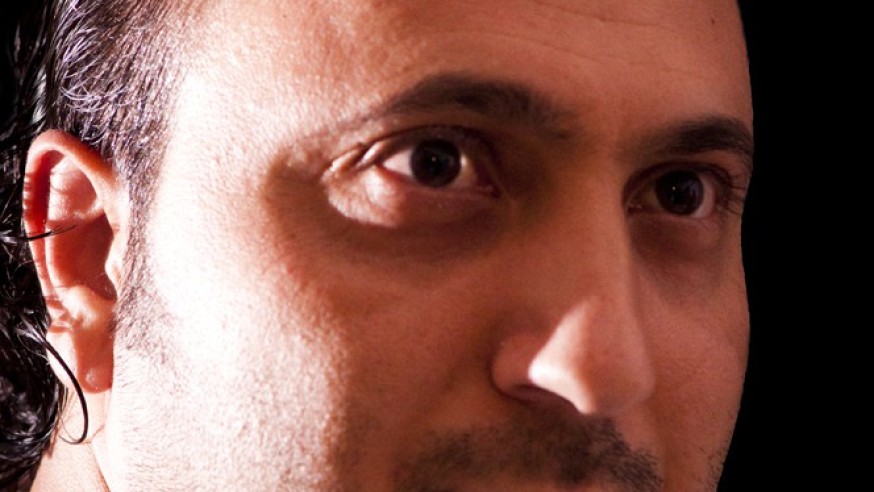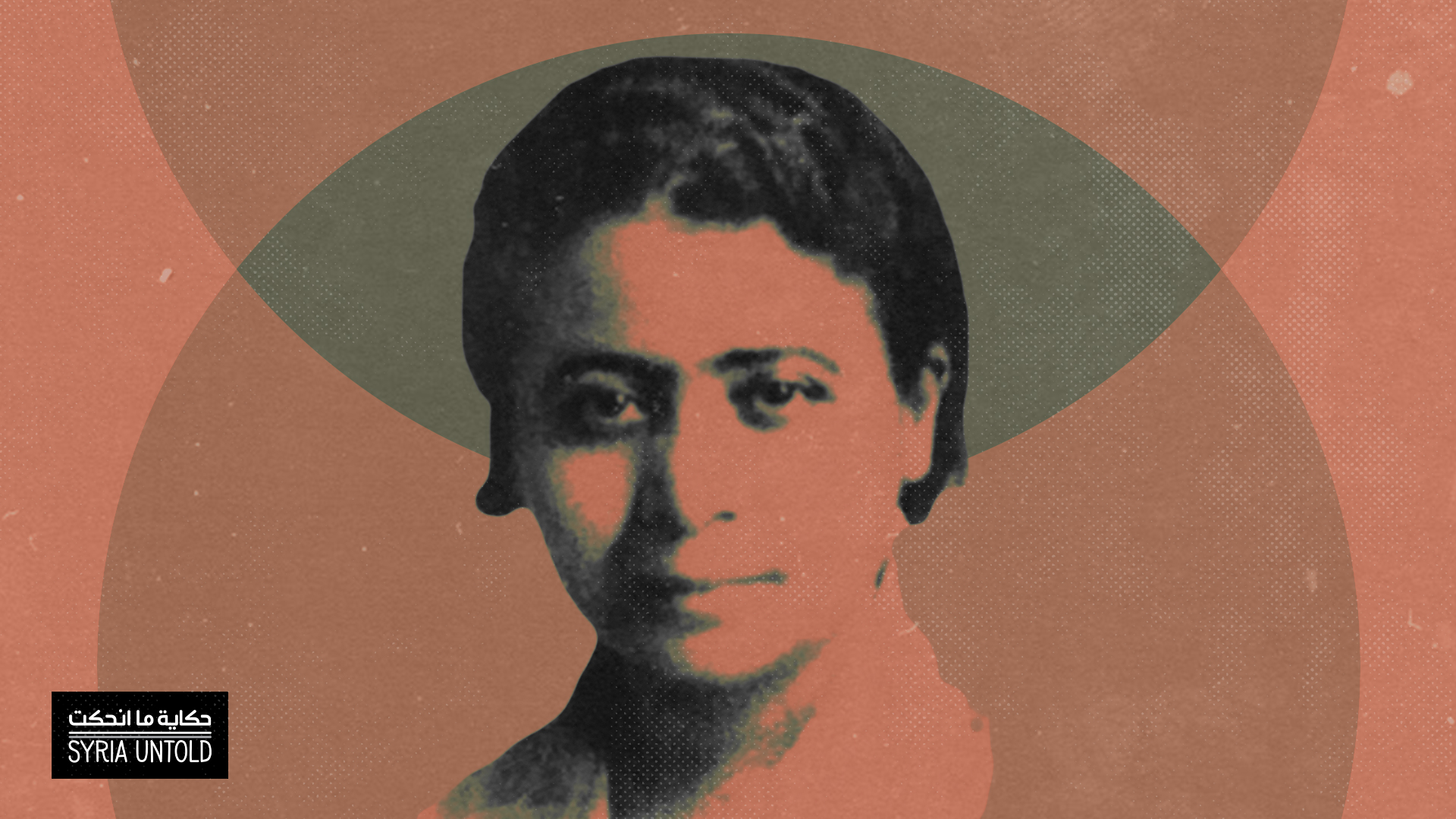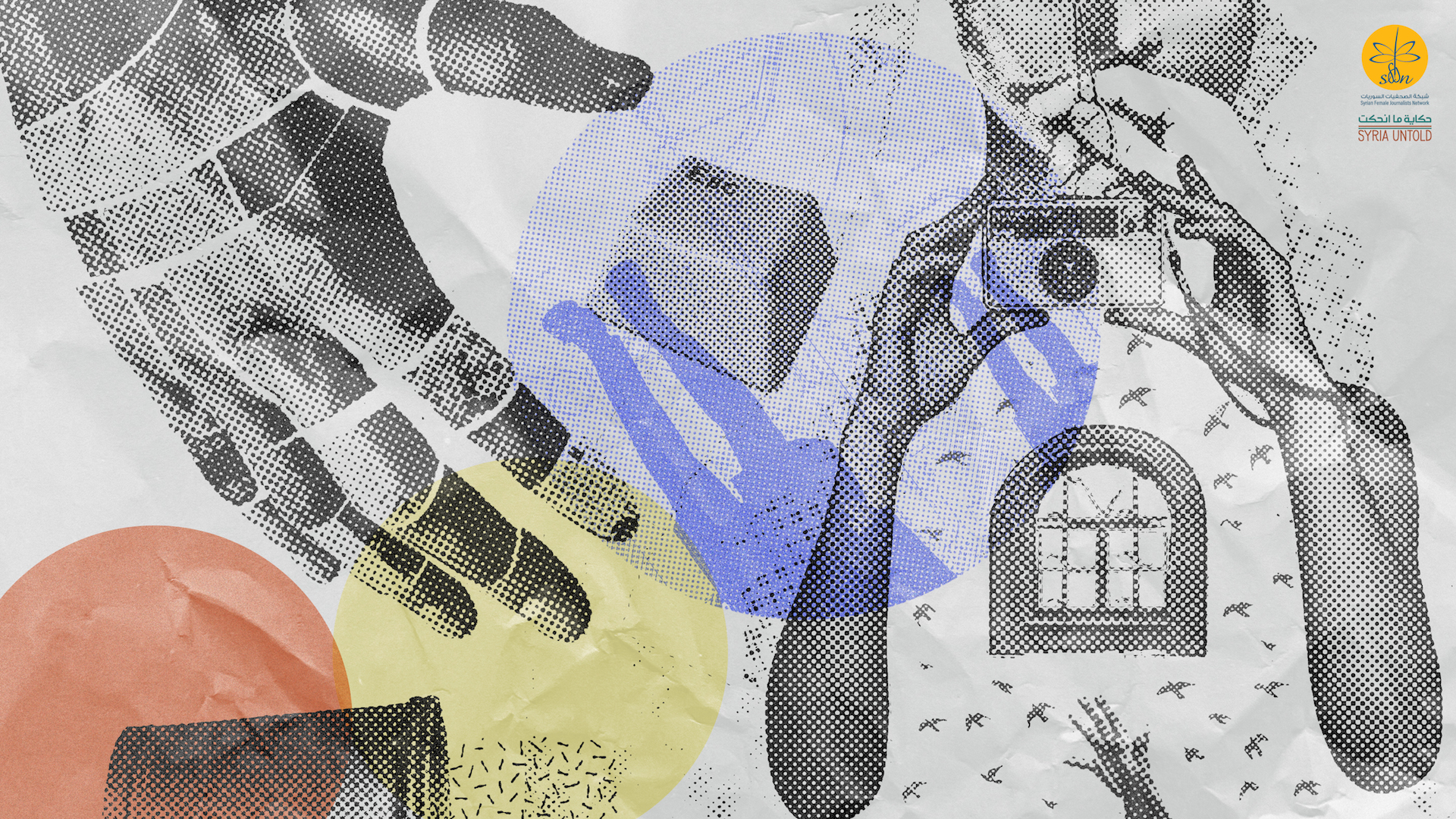Read this piece in its original Arabic here.
For more than three years, thoughts of her have imposed themselves on me. She comes to me in the form of little film-like snippets, though she has nothing to do with the cinema. No, she is closer to real life than anything else, that life that gave her nothing, not love, money, kindness, attention. She instead faced rejection, humiliation and disapproval, which forced her to withdraw early from life, to live in a miserable little room with a low ceiling.
All I remember of her is an old woman with a bent back and a village lady’s veil tied around her head. I try to recall her face. It comes to me like a fog in which I can’t grasp her features. Why did her ghost come back to me three years ago when, before that, I hadn’t thought of her in decades? Is it because of the harshness of her life, or because now, and only now, I’ve realized the injustice this woman faced after my conscience changed, after I gained more understanding of the body, sexual freedom and unwed mothers? Or were there other reasons, related to the soul and its secret corridors? Maybe it’s because the past years have seen me edit many stories about the injustices faced by women. My mind began to automatically recall all those women I knew of who bore their oppression in silence. Or maybe I didn’t pay attention to this injustice at the time, so it began to take its revenge against me in its own way.
But why is it Umm Adnan, whose story exists among the dozens of other women’s stories I’ve gotten to know, the one who now imposes herself on me with such urgency? I feel compelled to write about what remains of her in my memory and pull together the details of her life. She carried and gave birth to her child one day, out of wedlock, in our small, forgotten village on the Syrian coast. What would justice mean to her today, now that she lies forgotten among the folds of dust?
What did she dream of when she was young? What occupied her mind? I wonder what kind of life she pictured for herself before she had her son and society forced her into silence.
I know her only by the name other people called her: Umm Adnan. Adnan was her only son, to whom she gave birth after a relationship that mystified everyone. We didn’t know if it was love or something more fleeting. No one I knew in those days, more than 20 years ago, talks about it or reveals the details of this relationship, as if there was a secret agreement to keep it hidden and forget it.
Umm Adnan’s pregnancy transformed her from one of those women who live their lives “normally,” like millions of other women born in those remote villages who marry, give birth and serve their husbands for the rest of their days, into a woman discarded and shunned. She would be forced to carry shame at every step of her life, which would never expand beyond those few square meters I never saw her leave.
Mending what has been broken
12 February 2021
Water, herbal tea and sunshine
03 February 2022
After that moment, nobody heard her voice again. She never asked for anything from life, except for a coat. She avoided people’s looks, and their oppression. This is how she seemed to me when I was a child, when I was plucking at the little details of her life from the corners of my memory and from the memories of others who knew and intersected with her story.
She and I lived for nearly 20 continuous years in the same neighborhood. We rarely saw her, even though we children occupied the streets playing, passing the time. I only saw her when I passed by that narrow alleyway between two streets, where she lived in a dark basement, which itself was just a single room with a low ceiling. The owners of that house had given her the basement for her to “hide away” in after she dared to give birth outside the family system. She was rejected by everyone, her family and her relatives. And so she was given the tiny room. There was a little plot of dirt in front of it, or maybe it was a small patio—I don’t remember any more. She used to sit there, and I’d see her sitting and say hello to her, unperturbed by her daily suffering at the hands of those who were repulsed by her and rejected her. If I saw her visiting or being visited by someone, she kept silent. Or maybe she swallowed silence, fearing something worse.
Only once did the opposite happen. I remember that incident as if it just happened. Suddenly her name appeared on the tongues of all the women in the neighborhood, including my mother, who were talking about her with pity, love and sympathy without any apparent reason. This was long after her pregnancy, after she had grown old and her life was forgotten. That day, the women of the neighborhood said that Umm Adnan was crying, that she lamented: “My whole life has passed by under this low ceiling, and I haven’t seen a single kind moment, no grapes, no fruits, no oranges, no food, no care, nobody.” The women took pity on her, or maybe paid attention to their impoverished, afflicted neighbor. So they visited her carrying fruits, food and plenty of the sympathy and love that she had lacked more than anything else.
Umm Adnan’s only fault was that she carried and gave birth to a child and nobody knew if it was the product of a love relationship or something else. Nobody knew who the father was, nor did they think to ask about him. The offender is always the woman, the evidence of her “crime” ever present in her “bastard son,” this baby she paid for by burying her life, hopes and body in a dismal room beneath a low ceiling.
What must women carry in our societies? One moment can change a woman’s life from one extreme to another. Can we imagine just one moment changing our entire lives? A moment of love, or honesty or even recklessness. Who among us hasn’t made mistakes? But we men have plenty of leeway to fix our moments of recklessness and our mistakes, while millions of women in the world are forbidden from moving past those moments in their lives. One moment, no matter how absurd, isn’t worth all this penance. And what about when these otherwise beautiful moments of love or sexuality are seen simply as parts of our boyhood?
We men have plenty of leeway to fix our moments of recklessness and our mistakes, while millions of women in the world are forbidden from moving past those moments in their lives.
I think now of Umm Adnan, who passed away long ago. What did she dream of when she was young? What occupied her mind? I wonder what kind of life she pictured for herself before she had her son and society forced her into silence to ward off shame and scandal, when she hadn’t committed anything shameful in the first place. What if Umm Adnan had her son in a country whose laws allow mothers to remain single and raise their children out of wedlock? Maybe she could have pursued her dreams, and those of her son. Could she have been freed from the burden of “sin,” that false illusion that overshadowed her entire life? How difficult is it to live your life in the shadow of a “sin” you didn’t commit? And she wasn't alone in living beneath that shadow; it also cast itself over her son, whom we rarely ever saw in the village.
I remember him crossing our little street, driving the little tuk tuk from which he sold all sorts of little things outside the village. He hadn’t lived in the village since he grew up, and never sold anything there either, as far as I can remember. He bore his own shame and that of his mother wherever he went. He spent precious few moments in the village, always at the end of the week, or once per month, sometimes only on holidays. He’d say hello to his mother then return to the unknown, to other places where nobody knew him or the details of his life. I don’t remember ever seeing him visiting our neighbors’ homes or being invited as a guest anywhere. No, he was just someone passing through, drinking coffee prepared for him in a hurry then leaving to travel elsewhere, places that were perhaps more merciful to him than whatever he saw in the eyes of those who knew his story. I also cannot recall ever seeing his wife or children in our village. I don’t know if his mother ever met her grandchildren. They were a tale, like a fantasy that flutters through without anyone seeing or knowing.
On the day Umm Adnan died, they buried her in a hurry after they spoke with her son, who arrived quickly. Adnan attended the three days of mourning for his mother, then left and never came back to that village that knew his story. It is a story that we all now try to finish telling one another as a sort of redress for what happened to him and his mother. The two of them bore the ripple effects of a sin neither of them committed. I suppose this injustice forces millions of women in the world to bury their lives in oblivion. Maybe we retell Umm Adnan’s story in the hope of giving their voices light (even if only a little), of there being a world in which they have the freedom of choice.








